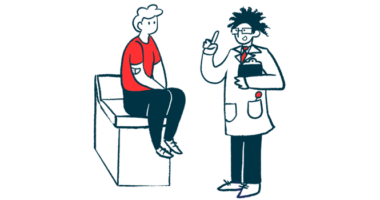DOD funds trial of exercise program for Parkinson’s swallowing
SwallowFIT aims to retrain brain's ability to control swallowing muscles

A $1.9 million U.S. Department of Defense–funded Phase 2 clinical trial will test SwallowFIT, a targeted exercise program designed to retrain the brain’s ability to control the muscles involved in swallowing — a function often compromised in Parkinson’s disease — in active-duty service members, veterans, or their relatives who have been diagnosed with the disease.
In earlier pilot testing, SwallowFIT helped patients improve their ability to swallow. Patients reported feeling more confident during meals and experiencing fewer episodes of choking, which can occur when a loss of control over swallowing causes food to move too slowly or enter the airway.
“Even though Parkinson’s is progressive, what we found in the pilot was that patients could make real, meaningful gains,” Giselle Carnaby, PhD, a professor at the University of Texas at San Antonio who is leading the trial, said in a university news story. “That gave us the validation to pursue a larger, controlled trial.”
The trial will recruit up to 80 patients, ages 30 to 90, at the Brooke Army Medical Center in San Antonio. Its goal is to evaluate how well SwallowFIT works compared with usual care. Participants in the control group will be offered the therapy after testing ends.
Parkinson’s can lead to a loss of control over the muscles of the head and neck, so it is common for patients to experience dysphagia, or changes to swallowing. As symptoms worsen over time, difficulties with eating and drinking, problems with taking medication, and excessive drooling tend to increase.
Strength through practice
SwallowFIT applies the principles of neuroplasticity (the brain’s ability to adapt and form new connections) to help reorganize the signals sent to the muscles involved in swallowing. Through repeated practice, it strengthens the muscles of the mouth, tongue, and throat while retraining the brain to send clearer signals.
“We know these problems have a profound effect on health and independence,” yet “there’s a need for therapies that go beyond symptom management alone to address the mechanisms of functional decline,” Carnaby said. “Our goal is to slow or even prevent some of the most debilitating complications of Parkinson’s.”
The program may reduce the risk of aspiration, the leading cause of death in Parkinson’s, in addition to helping patients stay well-nourished and hydrated, and improving their overall physical, psychological, and social well-being.
“Being able to share a meal with family without fear of coughing and choking is incredibly powerful,” Carnaby said. “We hope this therapy will give patients more confidence and independence in their daily lives.”
Patients will participate in two weekly sessions for six weeks, guided by speech-language therapists, and will be encouraged to complete daily exercises at home. Over the course of six months, researchers will monitor swallowing, aspiration, nutrition, and hospitalizations, and utilize advanced imaging to track changes in the muscles involved.
If the clinical trial succeeds, researchers believe it could pave the way for proactive swallowing therapy to become part of early care for dysphagia. Future testing could fine-tune and personalize the approach, possibly pairing the exercises with medication or brain-stimulation techniques.
“This is about giving patients more time and a better quality of life,” Carnaby said.







